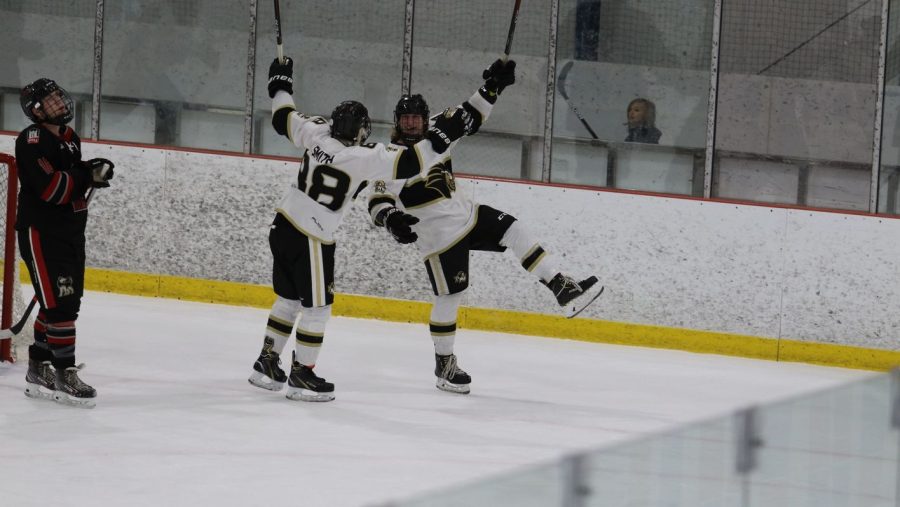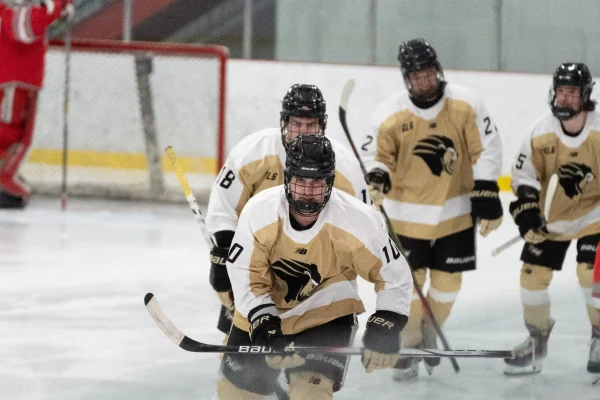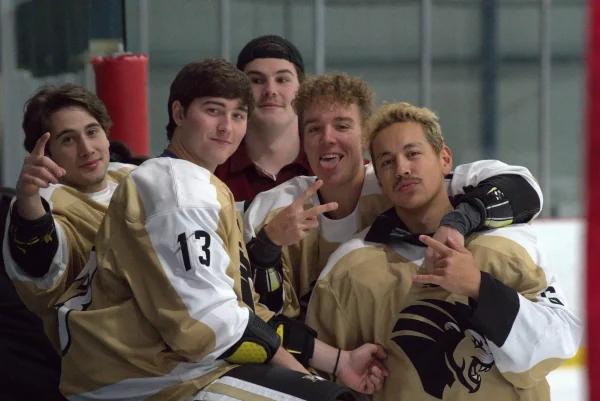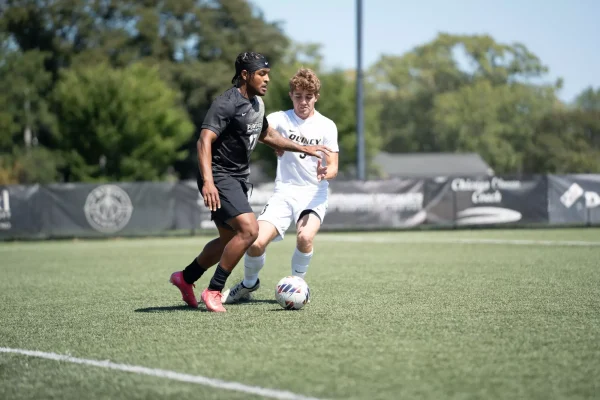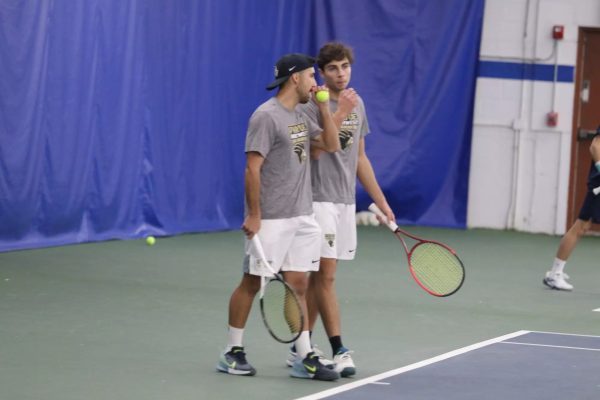New-to-DI hockey team makes ACHA top-25 rankings for the first time
Purdue Northwest’s only Division One (DI) athletic program is still trying to find its footing.
After spending just three seasons at the Division Two (DII) level, PNW was approved to play at the DI level of the American Collegiate Hockey Association (ACHA) last December.
“It’s been a learning curve,” said first-year head coach, Carl Trosien. “For the freshmen, it’s their first taste of college hockey. For the returners, it’s a step up in competition. We’re a young team that goes hard. We have had some success early but we’re still trying to find the identity of what it is that is going to make us successful.”
Freshman center Andrew Remer is still focused on the team’s development even after the squad’s 8-2-1 start.
“There’s still guys getting used to playing with one another,” he said. “I think we’re starting to settle into our systems. Our lines are getting a little bit more solidified. We’re getting into the conference season a little more and those ones are extremely important by the end of the year. Everything seems to be trending in the right direction.”
The team competes in the Great Lakes Collegiate Hockey League (GLCHL), led by two-time national championship-winning Adrian College and Trosien’s previous school, Grand Valley State University.
Trosien is familiar with success in the league, as he led Grand Valley to last year’s Great Lakes tournament championship while also winning the league’s Coach of the Year award.
He said he came to PNW searching for a change.
“Sometimes it is fun to build things,” he said. “I enjoy putting the puzzle together. I feel the track record is here, you just have to do the work. I’m excited to be here. I think this is a better long-term situation for both hockey and me.”
Building a DI hockey team is different from other collegiate sports. High-level recruiting deals with athletes who are coming out of two-year junior hockey programs instead of high school recruits. Junior hockey players are typically 16-to-21 years old and want to hone their skills for either professional play or a college career.
“We recruit junior hockey very heavily and we always have,” Trosien said. “For DI, you’ll see that about 95% of our roster is from junior hockey. First off, we’re getting an older kid. We’re getting a 20-year-old freshman versus an 18-year-old. So they get an extra two years of development. The flip side is that some of those kids haven’t been to community college or school.
“We brought in some really good hockey players and a bunch of really good character kids. That is kind of the way things were going on before I got here and that is the way things are going to continue to go.”
When the program was in DII last season, 16 of the 23 players were recruited straight from high school. The current team has just seven high school recruits on the roster of 28.
Trosien also manages PNW’s Division Three hockey team, which features more athletes straight from high school.
Although previous head coach Nick Tomczyk resigned in June to take a coaching job at Culver Academy, Trosien credits his efforts for PNW’s recruiting success.
“I did not have much to do with this year’s recruiting class,” Trosien said. “I recruited some of them and knew a bunch of them from watching them play at showcase events with my previous team, but I was not hired until late in the summer. Coach Tomczyk did a great job recruiting high-character guys who can play.”
He said players are attracted to PNW by the chance to play DI hockey. Hockey is different than other sports. ACHA has about 70 DI teams. By comparison, baseball has over 300 DI teams nationwide and basketball has more than 350.
“I would love to lie and say academics [entices recruits], but it is hockey,” said Trosien. “The amount of roster spots in the collegiate game is not the same as in every other sport. Kids have to go where the opportunities are.
“We have something that they obviously want,” he said. “We have a pretty good setup here with the academics and the tuition rate. The excitement here around this thing is really fun to be a part of.”


